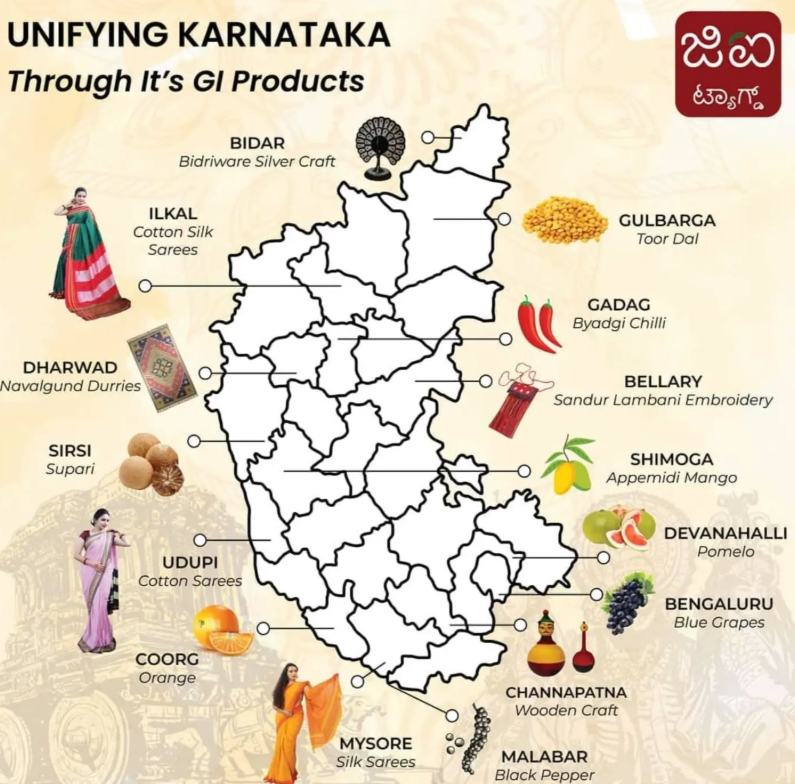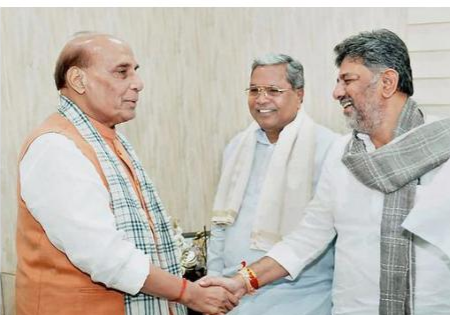High Court Stays Government Order to Shut Jan Aushadhi Centres in Hospital Premises
🔹 Background:
- The Karnataka State Government had issued an order to immediately shut down Jan Aushadhi centres located within government hospital premises.
- In response, 16 petitioners filed a case in the Kalaburagi Bench of the Karnataka High Court challenging this decision.
🔹 Petitioners’ Arguments:
- Jan Aushadhi centres provide essential medicines at subsidized rates, which greatly benefits poor patients.
- If these centres are closed, patients will be forced to buy expensive medicines from private pharmacies, leading to a financial burden.
- The government’s order to close these centres violates the right to access affordable healthcare.
🔹 Court Proceedings:
- The case was heard by Justice M.I. Arun at the Kalaburagi Bench.
- After hearing the arguments, the court issued an interim stay order on the government’s decision.
- The court directed that Jan Aushadhi centres should not be shut down until further hearings are completed.
🔹 Significance:
- The interim order ensures that affordable medicines remain accessible to the public, especially the economically weaker sections.
The case highlights the importance of public health initiatives like Jan Aushadhi in reducing healthcare costs for the common people.
Kalaloka Stall at Kempegowda International Airport (KIA), Bengaluru
🔹 Objective:
- To showcase and sell Karnataka’s heritage products, especially GI-tagged items.
- Promote local artisans and traditional crafts to global consumers.
Products to be Featured:
- 6 traditional Karnataka products, including:
- Coffee
- Mysuru silk
- Sandal soap (Karnataka Soaps and Detergents Limited – KSDL)
- Handicrafts
- Lidkar leather goods
- Handwoven textiles
- 28 GI-tagged products, including:
- Channapatna toys
- Others associated with Karnataka’s heritage
Recently: North Karnataka’s famed ‘patteda anchu’ sarees, received the coveted Geographical Indication tag |
Karnataka Seeks ₹12,000+ Crore for Six Irrigation Projects (2025)
Context:
The Karnataka government has approached the Centre seeking over ₹12,000 crore to complete six major irrigation projects, aimed at enhancing water resource management and addressing regional water needs.
Projects and Fund Allocation Sought:
- Yettinahole Project – Requested 25% Central assistance as it is a drinking water project.
- Sonthi Lift Irrigation Project – ₹804.66 crore.
- Upper Krishna Project (UKP) – Phase 3 – ₹2,666.7 crore.
- Malaprabha Canal – Third Stage – ₹3,000 crore.
- Ghataprabha Right Bank Canal – ₹3,000 crore.
- Chikkodi Branch Canal – ₹1,444.42 crore.
- Bennehalla Flood Mitigation – ₹1,610 crore.
Key Issues and Developments:
- Upper Bhadra Project:
- Revised estimates submitted.
- ₹10,604 crore already spent.
- Awaiting fund release confirmation.
- Mekedatu Drinking Water Project:
- Centre urged to approve appraiser’s report and project report.
- Clearance awaited from Forest Department.
- Land given, but clearance not yet received.
- Yettinahole Project:
- Work halted in Tumakuru and Hassan.
- Farmers whose land was acquired have been compensated.
CM seeks 25% Centre contribution under drinking water project status.
Karnataka Seeks Two Defence Industrial Corridors
Context:
- Chief Minister Siddaramaiah met Defence Minister Rajnath Singh in New Delhi.
- Submitted a memorandum requesting defence and infrastructure support.
Key Requests:
Two Defence Industrial Corridors:
- One in North Karnataka
- One in South Karnataka
- Aim: Boost defence manufacturing (aircraft, helicopters, and aerospace components)
Defence Land for Urban Projects:
- Requested 2,039 acres of land from Defence Dairy Farm in Bengaluru.
- Land to be used for the Bengaluru Suburban Railway Twin Tunnel Project.
Infrastructure Support in Bengaluru:
- Requested defence land at Old Jail Road (East Parade Ground) and Central Silk Board junction for urban mobility
Purpose of the Corridors:
- Karnataka contributes:
- 67% of aircraft & helicopter manufacturing
- 25% of India’s aerospace output
The corridors would further boost Make in India – Defence sector.
CeNS Develops Pocket-Sized SO₂ Sensor
Developed By:
- Centre for Nano and Soft Matter Sciences (CeNS)
- Led by scientist Angappane
About Sulphur Dioxide (SO₂):
- Toxic air pollutant from vehicles & industrial emissions
- Causes:
- Respiratory irritation
- Asthma attacks
- Long-term lung damage
- Difficult to detect before health damage occurs
- Real-time monitoring is crucial for safety, but existing methods are costly and inefficient
New Sensor Highlights:
Composition:
- Made by combining two metal oxides:
- Nickel oxide (NiO) – detects SO₂
- Neodymium nickelate (NdNiO₃) – transmits signal
Sensitivity:
- Can detect SO₂ at as low as 320 ppb
- More sensitive than many commercial sensors
Prototype Features:
- Portable and pocket-sized
- Real-time SO₂ monitoring
- Visual alert system:
- 🟢 Green = Safe
- 🟡 Yellow = Warning
- 🔴 Red = Danger
Advantages:
- High sensitivity
- Compact and lightweight
- Affordable and energy-efficient
- Promotes public health & environmental safety



